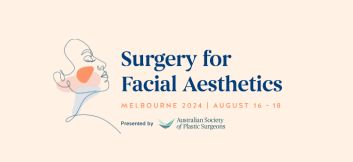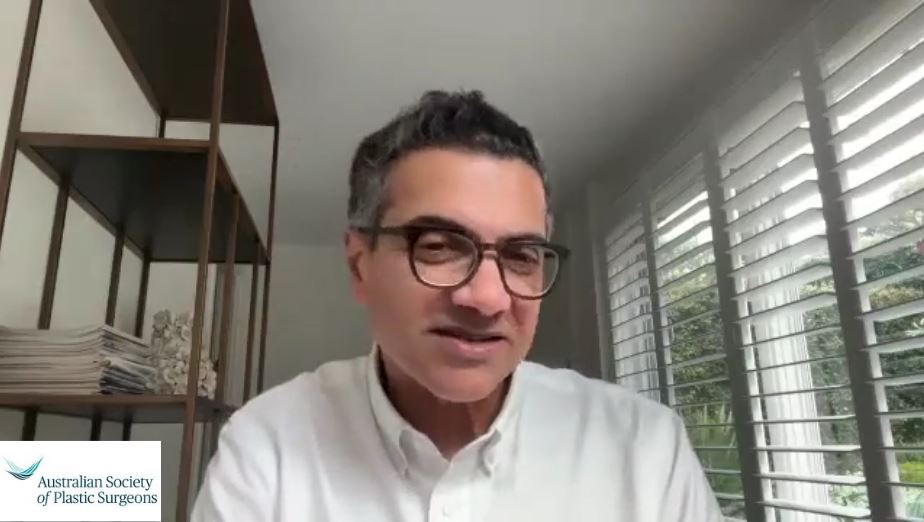Procedures
Burns and Scarring
- About Your Specialist Plastic Surgeon
- Cosmetic
- Non-surgical Procedures
- Plastic Surgery Glossary
- Questions for Your Surgeon
- Reconstructive
- Surgical Procedures
- Abdominoplasty (Cosmetic)
- Abdominoplasty (muscle repair postpartum)
- Arm Lift
- Body Contouring
- Body Lift
- Breast Asymmetry Correction
- Breast Augmentation (Implants)
- Breast Implants with Lift
- Breast Lift
- Breast Reconstruction
- Breast Reduction
- Brow Lift
- Burns and Scarring
- Buttocks Lift
- Chin Surgery
- Cleft Lip & Palate
- Ear Surgery
- Eyelid Reduction Surgery
- Facelift Surgery
- Facial Implants
- Fat injection
- Gender Affirming Surgeries
- Gynaecomastia (Male Breast Reduction)
- Hair Replacement Surgery
- Hand Surgery
- Labiaplasty
- Liposuction
- Nipple Enhancement for Inverted Nipples
- Nose Surgery
- Scar Revision
- Skin Cancer
- Thigh Lift
- Tissue Expansion
Burns and Scarring
Any surgical or invasive procedure carries risks. Before proceeding, you should seek a second opinion from an appropriately qualified health practitioner.
The formation of scars or scar tissue is a normal part of the healing process, and occurs when the skin is cut due to injury or surgery.
The growth of scar tissue is influenced by many factors, these include:
- The severity of the original injury
- The size, depth and location of the wound on the body
- Hereditary factors
- Ethnicity
- Colour of the skin (pigmentation)
- The technique of the initial surgical repair of the incision or wound
- A person’s overall state of health, fitness and nutrition
- The person’s age
- Diabetes
- Smoking, which slows the rate of healing
- A complication during healing, such as infection, inflammation, bleeding, or delayed healing
Scars are permanent. However, over time they may become less pink, faded and less noticeable. Occasionally, scars may be thick, irregularly raised and pink.
Scars may become a problem when they:
- Alter a person’s appearance, making them feel less attractive or self-conscious
- Impair movement or mobility
- Cause pain
- Cause intense itching and inflammation
Types of problem scars include:
Hypertrophic scars
– raised and red scars that are usually itchy and sometimes painful
Keloid scars
– similar to hypertrophic scars but tend to grow beyond the edges of the original wound. These scars can become thick, puckered and firm. They can also be itchy or painful
Contractures
– often results from burns and injuries where large areas of skin were lost. They can severely restrict movement and mobility
Facial scars
– include acne scars as well as traumatic scars. Due to their location on the face, these scars can affect a person’s appearance and self-esteem
While there are no medical or surgical method can remove a scar completely, Specialist Plastic Surgeons can often improve the comfort, function and appearance of a scar by making it less noticeable or easier to conceal.
There are many non-surgical and surgical techniques that may be used to treat problematic scars. A combination of surgical and non-surgical techniques may be used to achieve the best outcome. Discuss with your surgeon the most appropriate treatment for you.
Non-surgical treatment of scars include:
- Application of adhesive tape after wound healing to help flatten the scar
- Topical steroid (cortisone) creams
- Injection of a steroid (cortisone) into the scar
- Silicone gel dressings or bandages
- Compression garments
- Physical therapy
- Cryotherapy, where the surface of the scar is frozen with nitrogen. Once it blisters, the scar often shrinks and becomes less noticeable during the healing process that follows
- Chemical peels
- Soft tissue fillers including collagen, implants and autologous (patient’s own) fat
- Radiotherapy, usually for severe cases and as part of overall scar management
Dermabrasion:
is a procedure that uses an electrical machine to remove the top layers of skin. The process is comparable to sanding. Scars become less obvious as the skin surface heals.
Laser resurfacing:
is a procedure that uses high-energy light (laser) at a precise skin depth to remove scar tissue. It is especially useful for improving the appearance of keloid scars and the pockmarks of acne.
Excision:
is where the scar is cut out and repaired with one or more layers of stitches, aimed to produce a thinner less noticeable scar.
Z-Plasty or W-Plasty:
are procedures designed to re-align the scar tissue, particularly where a scar lies across a skin crease or where contractures have resulted from injuries, such as burns.
Skin graft and flap surgery:
are more complex procedures than other forms of scar revision. This form of surgery is usually for scarring that involves large areas of skin and for contractures that restrict movement or cause severe pulling of the surrounding skin. Skin grafting involves taking a piece of normal skin from a healthy part of the body (the donor site) and placing it on the area where scar issue has been removed. Flap surgery is more complex than skin grafting as it involves the transfer of healthy skin with fat, blood vessels and sometimes muscle still attached, from the donor site to the injured area.
Surgical scar revision is a highly individualised procedure and may not be suitable for everyone. Always talk to your Specialist Plastic Surgeon before making a decision. Your Specialist Plastic Surgeon will assess your condition and general health, and plan the treatment that is best suited to you.
Surgical scar revision may be a good option for you if:
- You are physically healthy
- You have realistic expectations
- Your scar is causing you pain and discomfort
- Your scar is limiting your movement and mobility
- You are self conscious about the appearance of your scars
- You are a non-smoker or have stopped smoking
Depending upon the procedure, general or local anaesthesia may be used. Modern anaesthesia is safe and effective, but does have some risks. Ask your Specialist Plastic Surgeon and anaesthetist for more information. Your surgeon and/or anaesthetist will ask you about all the medications you are taking or have taken, and any allergies you may have. Make sure you have an up to date list before the surgery.
Modern surgery is generally safe but does have the potential for risks and complications to occur.
Some possible complications and risks associated with scar revision surgery may include:
- Risks of anaesthesia including allergic reaction or potentially fatal cardiovascular complications such as heart attack
- Bleeding or infection that requires treatment with antibiotics
- Formation of a blood-filled swelling beneath the wound (haematoma) that requires draining
- Excessive pain that may signal the development of a wound infection, a haematoma or stiches that have become too tight due to postoperative inflammation and swelling
- Allergic reaction to suture materials, tape adhesive or other medical materials and lotions
- Keloid or hypertrophic scarring can recur following scar revision surgery
- Lack of improvement after revision surgery. The scar may not be any better than the original scar, this could lead to disappointment
- Need for further surgery to treat complications.
Depending upon the extent of the procedure, scar revision surgery can be performed either as a day case or alternatively with a short hospital stay. Your Specialist Plastic Surgeon will advise on the best option for you.
Before undergoing surgery, it is important that you:
- Be as fit as possible to help the recovery process
- Reach your optimal weight
- Check with your surgeon about your medications as some may need to be stopped
- Stop smoking
You will also be asked to provide a complete medical history for your Specialist Plastic Surgeon including any health problems you have had, any medication you are taking or have taken, and any allergies you may have.
You may be advised to stop taking certain medicines such as non-steroidal anti-inflammatory drugs (NSAIDs), aspirin, and medicines that contain aspirin. You may also be asked to stop taking naturopathic substances such as garlic, ginkgo, ginseng and St John’s Wort as they may affect clotting and anaesthesia. Always tell your surgeon EVERYTHING you are taking.
You may be given medicines to take before the surgery, such as antibiotics.
Your surgeon will also advise you if any other tests are required, such as blood tests, X-ray examinations or an Electrocardiograph (ECG) to assess your heart
Prepare a “recovery area” in your home. This may include pillows, ice packs, a thermometer and a telephone within easy reach. Make sure you arrange for a relative or friend to drive you to and from the hospital or clinic. Someone should also stay with you for at least 24 hours after you return home.
Your surgeon should give detailed preoperative instructions. Follow them carefully.
After removal of the stitches, your may be required to keep the fresh scar taped with a special type of dressing to protect the scar from spreading and to obtain a better cosmetic result.
If you experience any of the following symptoms, notify your surgeon immediately:
- Temperature higher than 38ºC or chills
- Nausea, vomiting or diarrhea
- Shortness of breath
- Heavy bleeding from the incisions
- Leakage of blood or fluid beyond the first day after surgery
- Worsening and/or spreading redness around the incision sites
- Increasing pain or tenderness in either breast
- Any other concerns or problems regarding your surgery, particularly if it appears to be worsening
At first, the new scar may look worse until it has had time to heal properly. During the months following your surgery, avoid exposure to the sun, as scar tissue is more prone to sunburn. Sun exposure may also prolong the period of redness of the scar, delay healing and cause excessive pigmentation of the scar.
Depending upon the severity of the original scarring, further treatment may be necessary in the following months.
Your surgeon will give you specific instructions on post-operative care. These instructions may include:
- How to care for your surgical site(s) following surgery
- Medications to apply or take orally to aid healing and reduce the risk of infection
- Specific concerns to look for at the surgical site(s) or in your general health
- When to follow-up with your surgeon
Be sure to ask your surgeon specific questions about what you can expect during your individual recovery period, such as:
- Where will I be taken after my surgery is complete?
- What medication will I be given or prescribed after surgery?
- Will I have dressings/bandages after surgery? If so, when will they be removed?
- Are stitches removed? When have they/will they be removed?
- When can I resume normal activity and exercise?
- When do I return for follow-up care?
Cost is always a consideration in elective surgery. Prices for a tummy tuck can vary widely between Specialist Plastic Surgeons. Some factors that may influence the cost include the surgeon’s experience, the type of procedure used and the geographic location of the office.
Costs associated with the procedure may include:
- Surgeon’s fee
- Hospital or surgical facility costs
- Anaesthesia fees
- Prescriptions for medication
- Post-surgery garments
- Medical tests
Your surgeon should welcome any questions you may have regarding fees.
- Excision:
To remove the skin - General anaesthesia: Drugs and/or gases used during an operation to relieve pain and alter consciousness
- Haematoma: Blood pooling beneath the skin
- Hypertrophic scars: Raised and red scars that are usually itchy and sometimes painful
- Keloid scars: Similar to hypertrophic scars but tend to grow beyond the edges of the original wound
- Local anaesthesia: A drug injected directly to the site of an incision during an operation to relief pain
- Pigmentation: Colour of the skin
Visit the Plastic Surgery Glossary for more medical terms.
This website is intended to provide you with general information only. This information is not a substitute for advice from your Specialist Plastic Surgeon and does not contain all the known facts about this procedure or every possible side effect of surgery. It is important that you speak to your surgeon before deciding to undergo surgery. If you are not sure about the benefits, risks and limitations of treatment, or anything else relating to your procedure, ask your surgeon to explain. Patient information provided as part of this website is evidence-based, and sourced from a range of reputable information providers including the American Society of Plastic Surgeons, Better Health Channel and Mi-tec medical publishing.
Featured Stories

Member Blog with Dr Ellis Choy: What is a Deep Plane Facelift?
Who is the ideal candidate for a deep plane facelift?…
Continue reading
